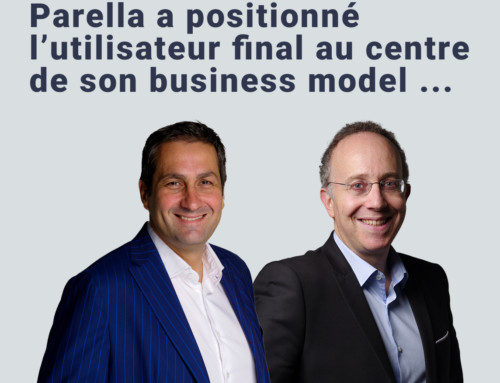5 concrete tips to support your teams in the reconfinement process

As soon as the group is back together, we start a second phase of confinement, but somewhat different from the first one: the rules are more flexible to allow for the continuity of the activity, and above all, the children are at school!
Today, the priority issue for organisations is therefore to maintain the collective and operational efficiency in a still uncertain health context, where the use of telework is not an option. The objective is to make a success of this new containment but also to prepare for the possible future...
Telework will become a permanent feature, and companies will have to set up a hybrid organisation that works both in person and remotely.
Here are 5 practical tips to share with your teams during this "second wave".
The prerequisite for the implementation of the 5 tips below is to establish a feedback (REX) to learn from mistakes and embed good practices. To date, the three best solutions for carrying out a feedback are :
- An internal survey of your employees
- Specific group meetings for targeted populations: team, management, HR, executive management
- Individual interviews for small teams
Tip 1: Set up team leadership now
Encourage managers to set up team rituals.
For example, here is a tried and tested rhythm: 1 weekly team meeting of 1 hour, 2 informal 15-minute "Happy Monday" and "Coffee time" at the beginning and end of the week.
Challenge the teams, take advantage of the arrival of the end of year celebrations to launch competitions, virtual activities...
Tip 2: Adopt a team organisation that can be sustained
Maintaining operational performance remains a priority. Get your teams to ask themselves the right questions: what tools have the teams bought into? How can you set up a follow-up that works both remotely and in person?
Don't waste time recreating templates, schedules, action plans etc. Digitalise processes and operations to make them last.
There is a wide range of tools on offer, but do not multiply them. Capitalise on those that work and are already tried and tested by your teams.
For example, suggest to your managers that they create a visual management chart (on Powerpoint, Klaxoon, a dedicated tool, etc.) that is easy to update and that makes it possible to monitor the team's key indicators (action follow-up, roadmap, performance indicators, team mood, etc.).
Tip 3: Prepare the collective for the end-of-year period
November is the start of the year-end interview period, and it is likely that they will take place remotely... Are teams ready to receive feedback remotely? Are managers trained to give feedback via video? The messages are not conveyed in the same way as in person and the communication is not the same: train and communicate on these subjects to prepare the group.
Supporting managers :
- Distance management training - Focus on feedback,
- Communication kit with additional, context-specific questions to be included in the end-of-year interview
Supporting employees :
- Videoconferencing
- Guide to "Communicating Well at a Distance
- Dedicated mailbox to collect concerns
Tip 4: Prevent Psycho-Social Risks (PSR) in teams and management
During the first confinement we mainly discussed the Psycho-Social Risks of employees: management is also confronted with these risks. Since the beginning of the health crisis, managers have been overstretched. Do not concentrate all your efforts on the teams alone.
It is certainly a more flexible confinement, but it does not mean that everyone accepts it and lives it better. It still requires special attention.
Preventing PSR in managers :
- External listening cell
- Managerial co-development
- Videoconferencing with peers, HR and management
Preventing PSR among employees:
- Barometer
- Individual interview / specific group meeting
- Listening unit
We end with one last simple, effective and indispensable tip:
Tip 5: Communicate
It cannot be repeated often enough, but internal communication is a real pillar of cohesion and internal dynamics: it is one of the major lessons of the first period. More than ever, the company must listen to its employees and keep them informed, showing empathy, benevolence and transparency. Inform about the life of the company, the successes during this period, the impact on the business if there is any.
Editors :
- Constance Corpechot - Manager People & Transformation Parella
- Diane Mendes - Senior Consultant People & Transformation Parella
We can help you with these issues:
- New ways of working
- Digital workplace
- Change management and communication
- Strategic advice
- Social relations
- Employee experience and commitment






